What should we do about anxiety? Does anxiety stand in the way of finding peace and tranquility? In part 1 of our series, Peace is the Project; we discussed learning to relax. And how, in truth, learning to relax is often far more challenging than it sounds.
Today’s episode is available to all subscribers. If you’d like our Daily Meditations on the Art of Living, along with access to 100+ member-only meditations, consider becoming a member today.
Today’s meditation turns its focus toward the topic of anxiety.
To begin, let’s define our terms:
Anxiety can be defined as a feeling of worry, nervousness, or unease about something with an imminent or uncertain outcome, according to the psychiatrist Dr. Judson Brewer (author of Unwinding Anxiety).
Ataraxia is a calmness untroubled by mental or emotional disquiet—or simply tranquility of mind. Ataraxia was the goal of the Stoics, Epicureans, and Skeptics (but one could argue the focus of all wisdom traditions).
Thought Experiment:
Is it possible to live a life free of anxiety?
What can anxiety teach us?
In his classic book The Meaning of Anxiety, existential psychologist Rollo May explained that we still cling to the illogical belief that “mental health is living without anxiety.” We seem unaware that the delusion of living without anxiety reveals a radical misperception of reality. May stressed that we have “anxiety because it is possible to create—creating one’s self, being willing to be one’s self, as well as creating in all the innumerable daily activities. One would have no anxiety if there were no possibility.”
Anxiety has several benefits—it sharpens our sensitivity and assures the presence of the tension that is necessary to preserve human existence. When no anxiety exists, the struggle is over, and depression may ensue. For this reason, the nineteenth-century philosopher Soren Kierkegaard held that anxiety is our “best teacher.”
In The Concept of Dread, Kierkegaard put it this way, “I would say that learning to know anxiety is an adventure that every man has to affront if he would not go to perdition either by not having known anxiety or by sinking under it. He, therefore, who has learned rightly to be anxious, has learned the most important thing.” For Kierkegaard, one must lead their life despite the anxiety.
“To venture causes anxiety, but not to venture is to lose oneself.”
— Kierkegaard
In Sickness Unto Death, Kierkegaard observed,
So it is too that in the eyes of the world, it is dangerous to venture. And why? Because one may lose. But not to venture is shrewd. And yet, by not venturing, it is so dreadfully easy to lose that which it would be difficult to lose in even the most venturesome venture, and in any case never so easily, so completely as if it were nothing—one’s self. For if I have ventured amiss—very well, then life helps me by its punishment. But if I have not ventured at all—who then helps me? And, moreover, if by not venturing at all in the highest sense (and to venture in the highest sense is precisely to become conscious of oneself), I have gained all earthly advantages . . . and lose my self!
Existentialists speak of freedom and possibility. But another way to think about freedom is uncertainty. As Mollo puts it, anxiety is present when we confront this freedom (or the unknown). Think of possibilities as roads ahead that cannot be known since one has not yet traversed and experienced them. Therefore, Kierkegaard observed that the more possibility (or uncertainty) an individual has, the more potential anxiety he has simultaneously.
Final Thoughts
It is important to remember that the presence of anxiety (at a normal level) is not the enemy of tranquility. As the late Zen Master Thich Nhat Hanh stressed in his book No Mud, No Lotus, “One of the most difficult things for us to accept is that there is no realm where there’s only happiness, and there’s no suffering.” The same is true for anxiety and tranquility. One could say that the art of tranquility is also the art of learning to know our anxiety.
We are wired to worry. But one must recognize that these worries are not always warranted. Seneca highlighted this point in a letter known today as On Groundless Fears,
There are more things, Lucilius, likely to frighten us than there are to crush us; we suffer more often in imagination than in reality. … What I advise you to do is not to be unhappy before the crisis comes; since it may be that the dangers before which you paled as if they were threatening you will never come upon you; they certainly have not yet come. Accordingly, some things torment us more than they ought; some torment us before they ought; and some torment us when they ought not to torment us at all. We are in the habit of exaggerating, or imagining, or anticipating, sorrow.
These same lessons apply to anxiety. We are wise to accept that a certain level of anxiety is simply part of the human condition. And that befriending whatever arises is connected to finding tranquility in daily life.
—
Thank you for reading; I hope you found something useful.
Until next time, be wise and be well,
P.S. As always, feel free to comment, ask questions, or make suggestions!

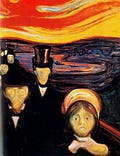







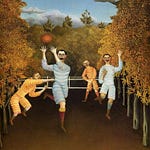
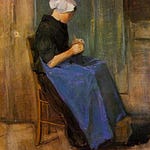

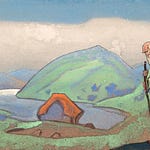
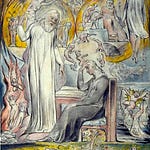
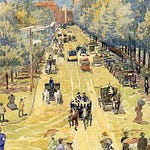

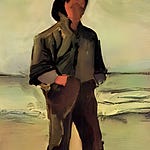
The Meaning of Anxiety